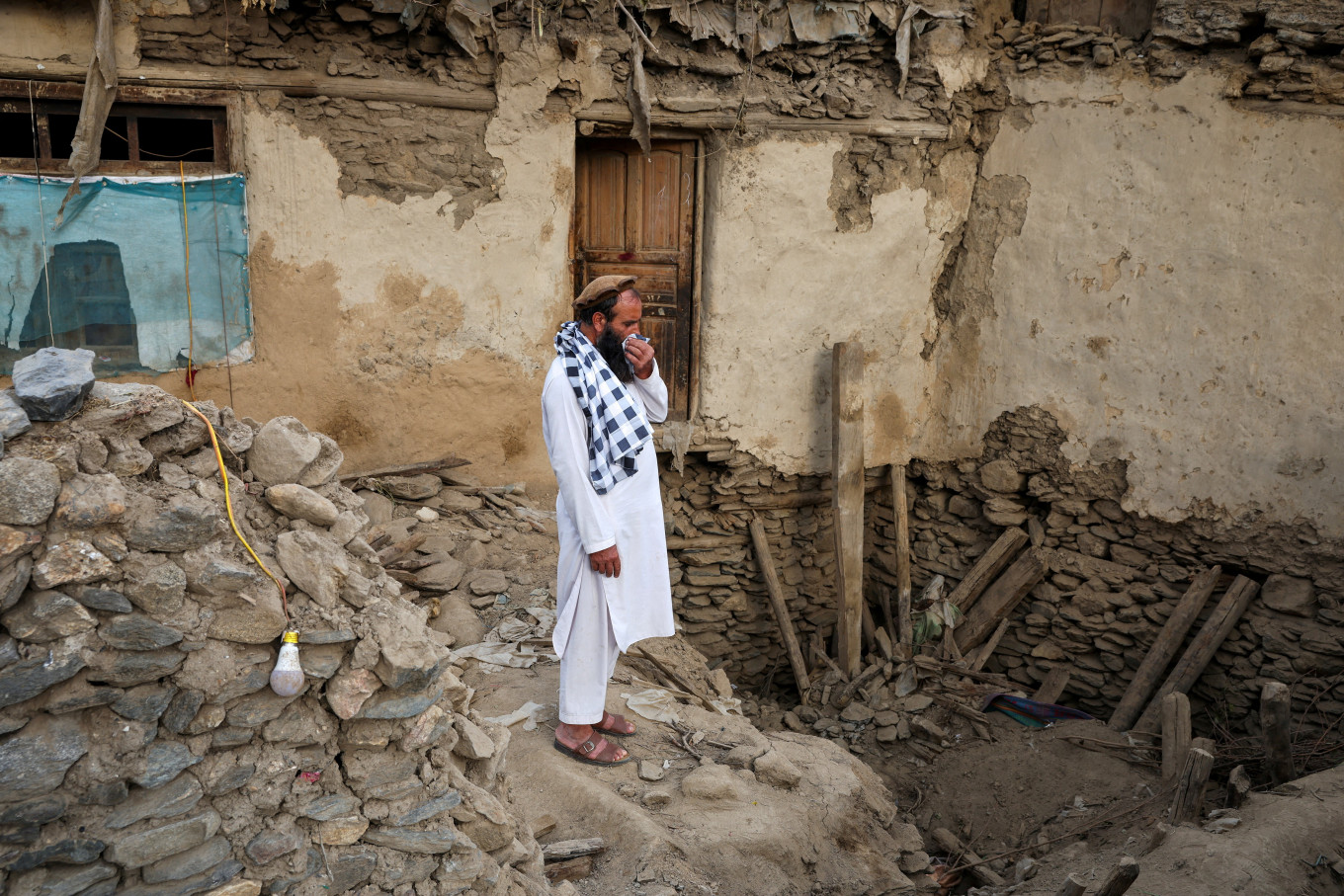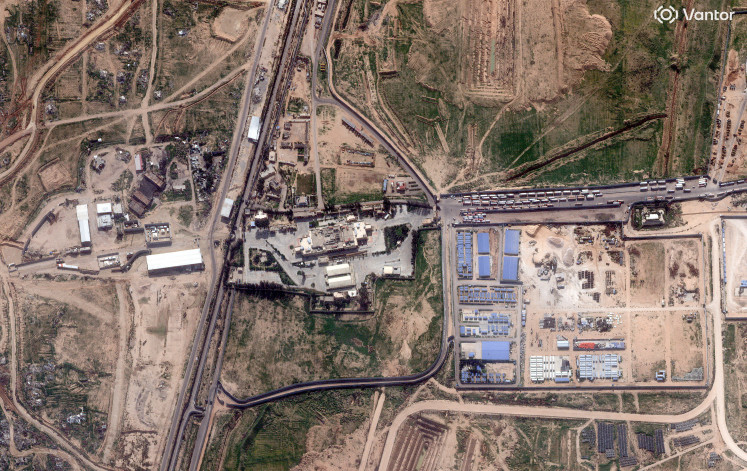Popular Reads
Top Results
Can't find what you're looking for?
View all search resultsPopular Reads
Top Results
Can't find what you're looking for?
View all search resultsAfghan earthquake death toll crosses 1,400, authorities say
Afghanistan is prone to deadly earthquakes, particularly in the Hindu Kush mountain range, where the Indian and Eurasian tectonic plates meet.
Change text size
Gift Premium Articles
to Anyone
T
he death toll from Afghanistan's worst earthquake in years jumped to over 1,400 on Tuesday with thousands more injured, authorities said, as difficult terrain hindered rescue efforts in isolated villages of the country's mountainous eastern region.
At least 1,411 people have died, 3,124 have been injured and over 5,400 houses have been destroyed, Taliban administration spokesperson Zabihullah Mujahid said.
More people are feared trapped under rubble, said the Afghan Red Crescent Society, a humanitarian group working in the region. The UN coordinator in Afghanistan said the toll was likely to rise.
Afghanistan is prone to deadly earthquakes, particularly in the Hindu Kush mountain range, where the Indian and Eurasian tectonic plates meet.
The earthquake, with a magnitude of 6, struck around midnight local time on Monday, at a shallow depth of 10 km, with the eastern provinces of Kunar and Nangarhar being the worst hit.
Rescue operations were carried out in four badly hit villages in Kunar on Monday and efforts will now be focused on reaching more remote mountain areas, said Ehsanullah Ehsan, the provincial head of disaster management.
"We cannot accurately predict how many bodies might still be trapped under the rubble," said Ehsan. "Our effort is to complete these operations as soon as possible and to begin distributing aid to the affected families."
Mountainous terrain and inclement weather have hindered rescuers reaching remote areas along the Pakistani border where the quake flattened hundreds of mud-and-brick homes.
Access for vehicles along narrow mountain roads was the main obstacle, said Ehsan, adding machinery was being brought in to clear roads of debris.
On Tuesday, a line of ambulances was on the damaged mountain road trying to reach Kunar villages, as helicopters flew in, bringing aid supplies and taking the injured to hospitals, according to a Reuters witness.
Some of those injured have been transferred to hospitals in Kabul and the adjacent province of Nangarhar, said Ehsan.
Thousands of children were at risk, the United Nations Children's Fund warned on Tuesday.
UNICEF said it was sending medicines, warm clothing, tents and tarpaulins for shelter, and hygiene items such as soap, detergent, towels, sanitary pads, and water buckets.
Taliban soldiers were deployed in the area, providing help and security. The disaster has further stretched the war-torn nation's Taliban administration, already grappling with a sharp drop in foreign aid and deportations of hundreds of thousands of Afghans by neighboring countries.
Rescue teams and authorities are trying to dispose of animal carcasses quickly so as to minimize the risk of contamination to water resources, a UN official said on Monday.
"Damaged roads, ongoing aftershocks, and remote locations of many villages severely impede the delivery of aid," the World Health Organization said, adding that over 12,000 people had been affected by the quake.
"The pre-earthquake fragility of the health system means local capacity is overwhelmed, creating total dependence on external actors," it said.
Food and tents were desperately needed, said Safiullah Noorzai from Aseel, a humanitarian tech platform with networks around Afghanistan. With their houses in ruins, many people were living in the open amid a fear of aftershocks, Noorzai added.
The rescue and relief work has struggled in the face of tight resources in the war-torn, impoverished nation of 42 million people and limited global help in the aftermath of the tragedy.
So far, Britain has allocated 1 million pounds ($1.35 million) to support the efforts of UN and the International Red Cross in delivering critical healthcare and emergency supplies.
India delivered 1,000 tents and was moving 15 tonnes of food supplies to Kunar, with more relief materials to be sent on Tuesday.
Other nations such as China, the United Arab Emirates, the European Union, Pakistan and Iran have pledged help but aid is yet to arrive.
Afghanistan has been badly hit by US President Donald Trump's decision in January to cut funding to its humanitarian arm USAID and reductions in other foreign aid programs.
Crises elsewhere in the world, along with donor frustration over the Taliban's policies toward women and curbs on aid workers have been a factor in funding cuts, according to diplomats and aid officials.










